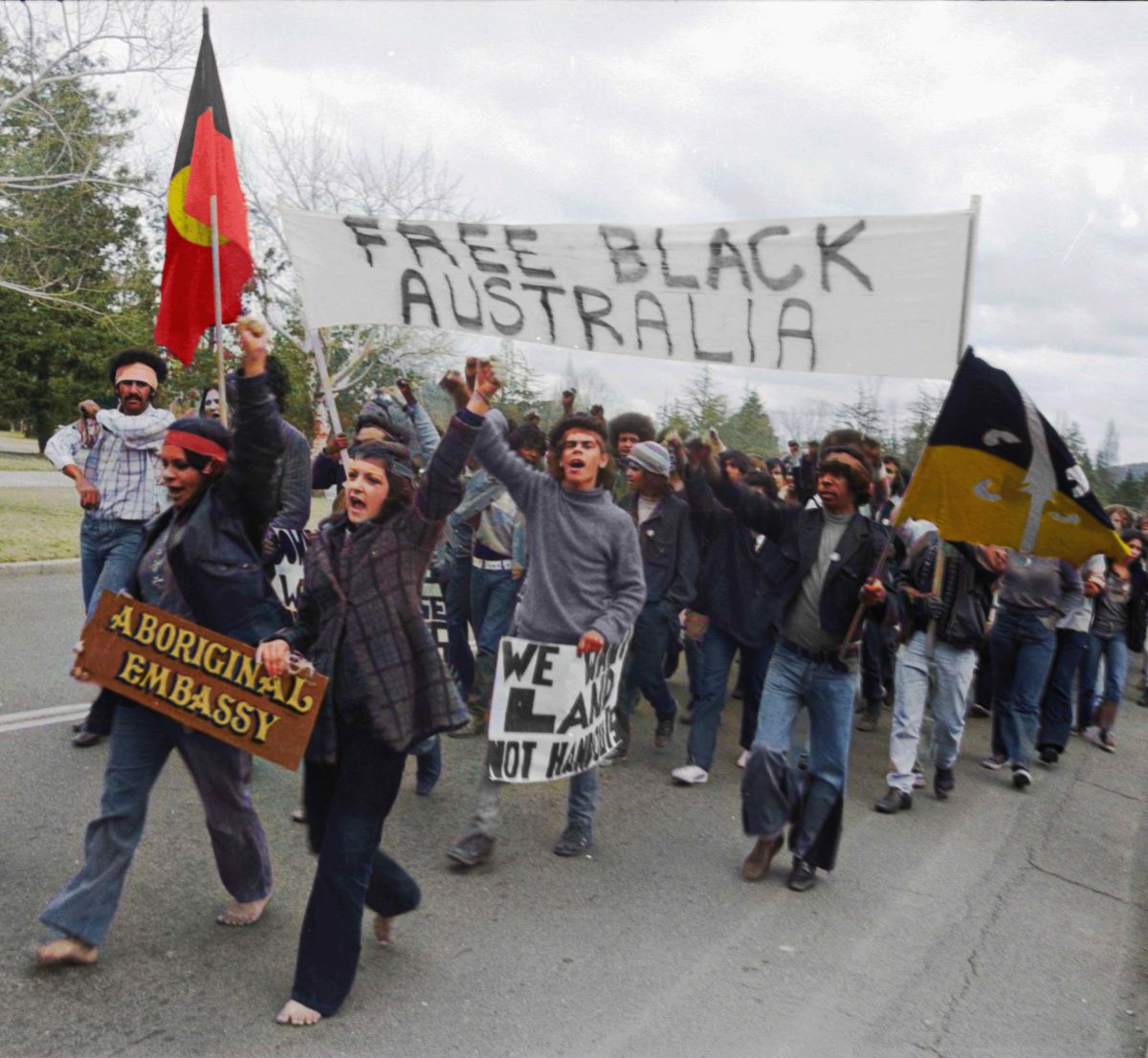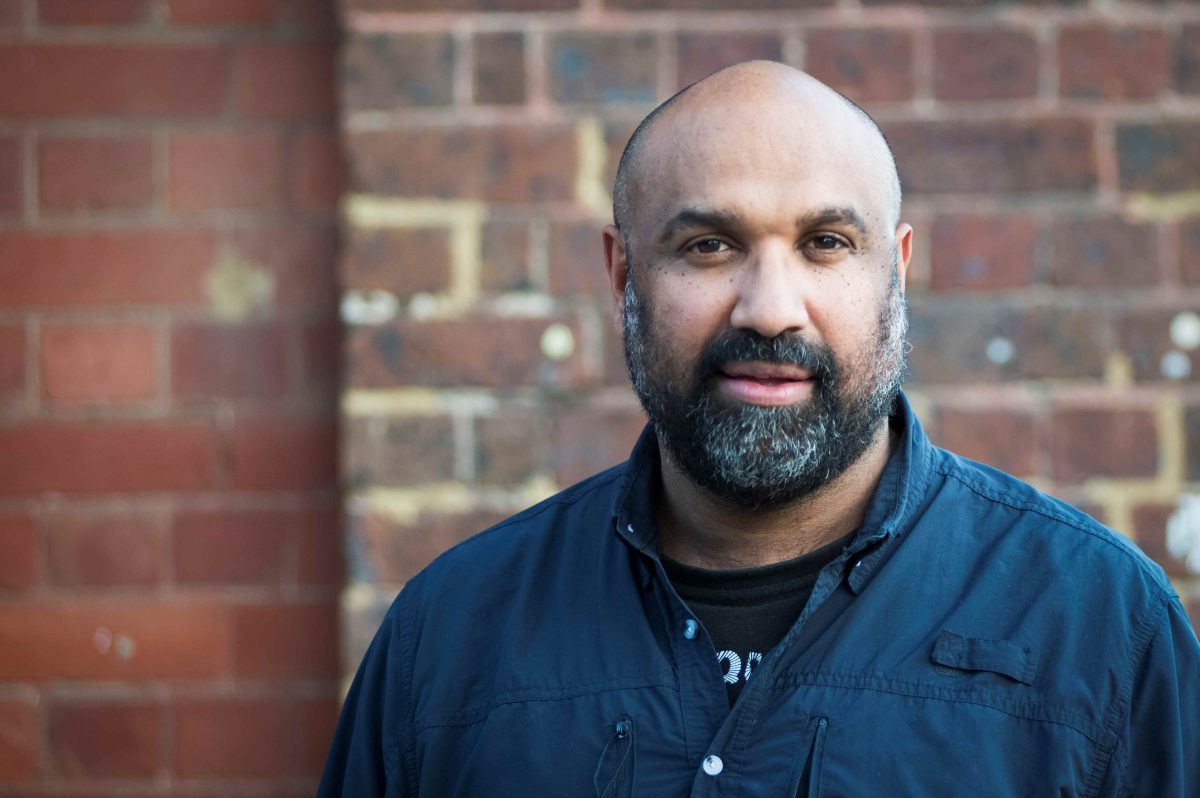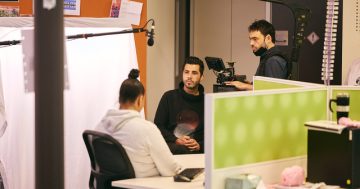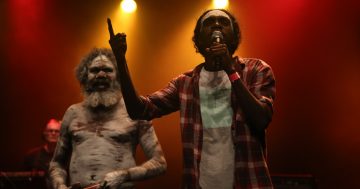
Filmmaker John Harvey used protest footage from the ABC TV news archives for his award-winning documentary, Still We Rise. Photo: Supplied.
As a young man living in the north of Australia, John Harvey didn’t know a lot about the Aboriginal Tent Embassy in the nation’s capital, at the other end of the country.
His mother’s mob came from Saibai Island, in the Torres Strait, and he spent much of his early life there before moving down to Queensland.
As he grew older, he learned more about it.
“I probably didn’t fully comprehend all aspects of it,” he said, “but then as I understood more, I realised how it galvanised all these voices from across the country.”
Fast forward to this week. John is now creative director of Brown Cabs, his First Nations production company which tells stories for film and theatre. His ethos: “Maintaining a simple philosophy of story dictates form, we believe the journey [or the cab ride] of storytelling is as important as the story being told.”
His latest production, Still We Rise, won the award for Best Direction in a TV or Documentary Series at the 2023 Australian Directors’ Guild Awards which were announced in Sydney last week.
READ ALSO: Canberra woman takes out national Indigenous student of the year title
Still We Rise, John says, tells the story of the 50-year history of the Aboriginal Tent Embassy, located in front of the former Parliament House now the Museum of Australian Democracy.
Unlike many documentaries which feature a narrator, he crafted his work using only archival footage and photographs from news reports of the growth of the embassy right up to the present day. It is, he believes the longest-ongoing protest site in Australian and possibly world history.
He said he was approached by producer Anna Grieve from Tamarind Tree Pictures in the Northern Territory to do a documentary about the 50th anniversary of the then embassy – a beach umbrella – which was erected by First Nations men Michael Anderson, Billy Craigie, Bertie Williams and Tony Coorey. The men were protesting against the McMahon Government’s approach to land rights. Indigenous activist Gary Foley said at the time: “Aborigines are treated like aliens in their own land” – which is why they needed an embassy.
John said he was delighted that Gary Foley helped work on this new documentary as a cultural advisor.
READ ALSO: War Memorial joins with Legacy to showcase strength of Indigenous women through art
Still We Rise has been some years in the making. As a filmmaker, John said, he usually had access to bits of archive material, rarely a full collection. But in the making of this film, he had full access to ABC television news footage from when the embassy was erected in 1972.
“To have access to all that footage was amazing,” he said. “To be able to use first-hand accounts of what was happening, that’s a pretty rare thing – but it was perfect for the sort of film I wanted to make.”
The tent embassy, John was to learn, was a place which “galvanised all these voices from across the country”.
“People might have been having conversations in their community, but where it was coming together was at the tent embassy,” he said.

Filmmaker John Harvey won a major directing award for his documentary Still We Rise, about the 50th anniversary of Canberra’s Aboriginal Tent Embassy. Photo: Supplied.
“Choosing that location was pure genius, he said.
“The concept of having it on the front lawn of that place, it was a really intelligent approach that spoke to ordinary people who didn’t know much about Indigenous stuff.”
The documentary premiered on ABC TV in December last year.
He said when it came to his proudest achievements as a film-maker, it “was up there”.
“I was particularly proud of it being able to tell such a big story using only archival footage and no narrator. This film is all about power and people’s voices.”
Fifty years on, he said, First Nations Australians had a lot to be hopeful about.
“Some things have changed, some not. When you look at this footage, you see the energy people had. It was a time when Australia was deciding on its own identity, there were lots of protests at the time – women’s rights, Vietnam, apartheid in South Africa – it was a time when people started to become aware.
“I just hope that this film resonates with young people today – they’re the ones carrying on the legacy.”














